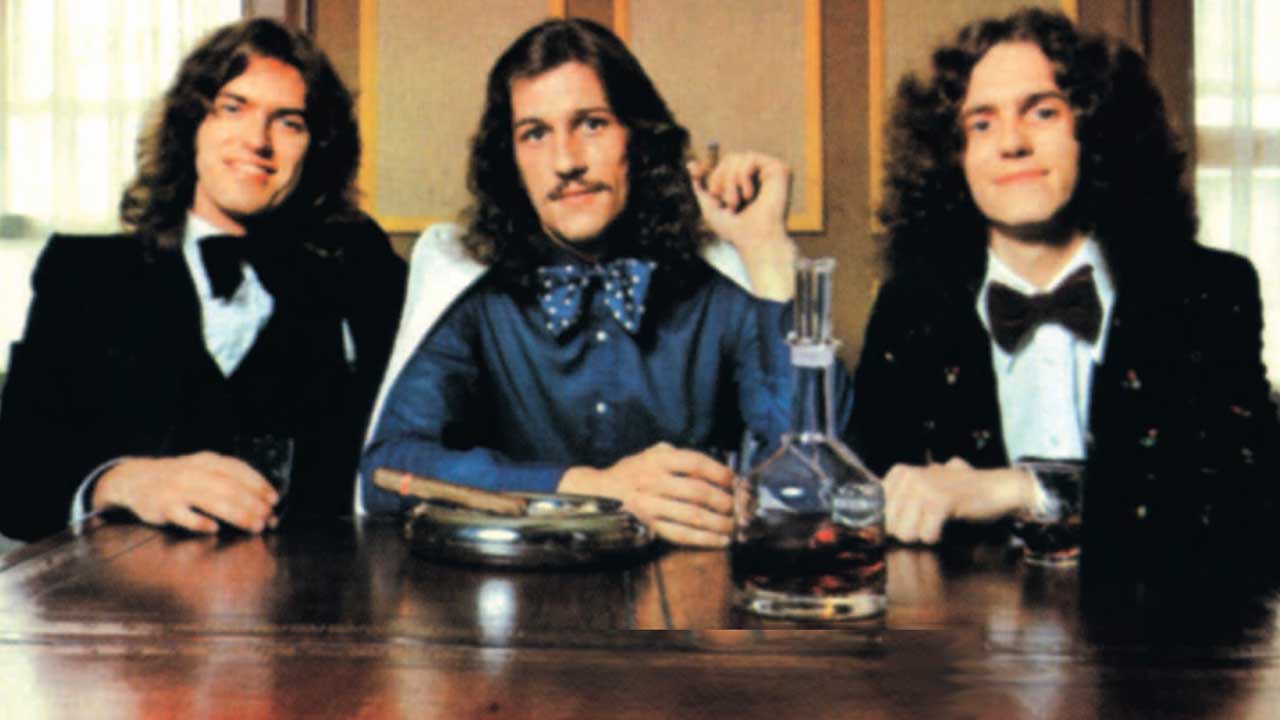Why the failure of Stray Dog is one of the rock world’s biggest conundrums
Greg Lake loved them. They had one of the greatest opening tracks on any album, ever. Their guitarist is a hugely successful TV composer. So why did Stray Dog fail?

Select the newsletters you’d like to receive. Then, add your email to sign up.
You are now subscribed
Your newsletter sign-up was successful
Want to add more newsletters?

Every Friday
Louder
Louder’s weekly newsletter is jam-packed with the team’s personal highlights from the last seven days, including features, breaking news, reviews and tons of juicy exclusives from the world of alternative music.

Every Friday
Classic Rock
The Classic Rock newsletter is an essential read for the discerning rock fan. Every week we bring you the news, reviews and the very best features and interviews from our extensive archive. Written by rock fans for rock fans.

Every Friday
Metal Hammer
For the last four decades Metal Hammer has been the world’s greatest metal magazine. Created by metalheads for metalheads, ‘Hammer takes you behind the scenes, closer to the action, and nearer to the bands that you love the most.

Every Friday
Prog
The Prog newsletter brings you the very best of Prog Magazine and our website, every Friday. We'll deliver you the very latest news from the Prog universe, informative features and archive material from Prog’s impressive vault.
Back in 1973, I was getting my road safety advice from a rather unusual source. Step forward guitarist/vocalist William Garrett ‘Snuffy’ Walden, whose Highway Code counsel crops up a minute or so into Tramp (How It Is), track one on Stray Dog’s self-titled debut album.
First, a brooding dose of operatic droning lulls you into a false sense of security. And then… ‘Fasten your seat belt!’ Snuffy’s shrieked warning comes too late. He unleashes his liquid, lascivious guitar – sounding like a Frankenstein-monster version of ZZ Top’s Billy Gibbons – and the sudden impact jerks you forward, and your head smashes through the glass coffee table on the floor in front of you.
As you pluck crystal shards from your forehead and examine your neck for whiplash injuries, Snuffy and his band-mates (Al Roberts, bass/keyboards; Les Sampson, drums) show no mercy: their mongrel sound just gets more beat-up and mangy by the second. Is Tramp (How It Is) the greatest opening track on any album, ever? I’d put big money on it.
Stray Dog began life as Aphrodite, a trio based in Texas. The line-up was Walden (born in Louisiana, raised in the cowboy state), Roberts and drummer Randy Reeder. One night while they were playing in a club in Roberts’s home town of Denver, Colorado, Greg Lake turned up in the audience (ELP were playing locally). Lake was so impressed by Aphrodite that he offered them a deal with ELP’s Manticore label on the spot. It was time to believe in Father Christmas.
Lake wanted Aphrodite to hop on a plane immediately and fly back to the UK to make an album. Snuffy and Roberts agreed, but Reeder didn’t want to quit the US so the pair left him behind. Once in the UK they found a new drummer (Sampson), changed their name to Stray Dog and recorded their debut with Lake producing. The three-piece then wandered off on a tour with ELP… but inexplicably their album went nowhere, and follow-up release (recorded with a slightly different, expanded line-up)
While You’re Down There suffered the same fate. Why did Stray Dog fail?
I dunno. It’s one of the rock world’s biggest conundrums. With the exception of the eccentric spoken ballad A Letter, every track here is as savage as a pedigree pit-bull chewing on a fat pigeon. Crazy continues the leery mood established by Tramp (How It Is) and Chevrolet is actually more reminiscent of an Eliminator-style hot-rod (no wonder, it has the mysterious B. Gibbon [sic] co-credited as a writer; the song was also on ZZ Top’s Rio Grande Mud album).
Sign up below to get the latest from Classic Rock, plus exclusive special offers, direct to your inbox!
Elsewhere, Speak Of The Devil has massive female backing vocals, and Slave is all scraped knuckles and bare bones. The record climaxes with the epic Rocky Mountain Suite (Bad Road), a house-flattening avalanche of dusty ol’ 70s heavy rock boulders.
So what happened after Stray Dog split? With Paul Kossoff’s health failing, Snuffy (who was friendly with keyboardist John ‘Rabbit’ Bundrick) apparently played some guitar on Free’s Heartbreaker album and also on tracks for Koss’s own Back Street Crawler. Snuffy then made albums of his own and moved to LA where his solo schtick continued. He also gigged with Chaka Khan, Eric Burdon and Donna Summer.
Today, Mr Walden is renowned for scoring and playing the chilled-out themes to US TV shows such as Thirtysomething, The Wonder Years, Ellen, Roseanne and the Stephen King mini-series The Stand. He even won an Emmy for his slyly evocative work on The West Wing, and more recently he's contributed to Friday Night Lights and Nashville. President Bartlett would surely approve.
Geoff Barton is a British journalist who founded the heavy metal magazine Kerrang! and was an editor of Sounds music magazine. He specialised in covering rock music and helped popularise the new wave of British heavy metal (NWOBHM) after using the term for the first time (after editor Alan Lewis coined it) in the May 1979 issue of Sounds.

